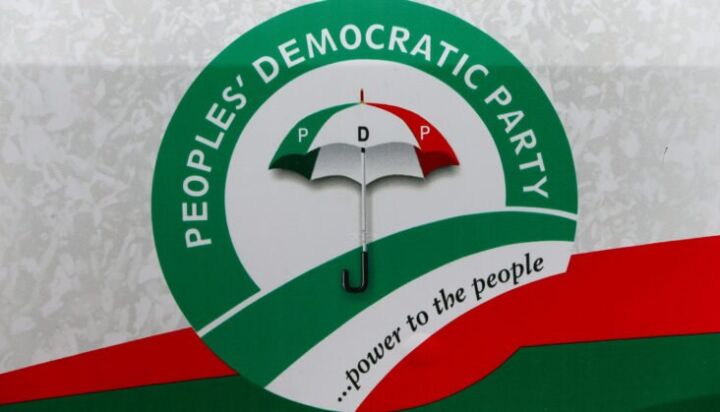Samuel Anyanwu, the Peoples Democratic Party (PDP) candidate in the November 11, 2023, Imo State Governorship Election, has strongly criticised the recent Supreme Court verdict that upheld the election results.
Describing the ruling as a “legalisation of electoral fraud,” Anyanwu insisted that he was the rightful winner of the election, claiming that the Apex Court ignored the evidence of his victory.
In a press statement released by his Media Aide, Ikenna Onuoha, Anyanwu expressed deep dissatisfaction with the Supreme Court’s decision, accusing it of legitimising what he termed as a “charade.”

The PDP candidate, who also serves as the National Secretary of the party, maintained that the true will of the people of Imo State was subverted by the ruling, which he believes will have long-lasting implications for Nigeria’s judiciary.
Anyanwu’s statement was unambiguous in its allegations against the All Progressives Congress (APC) and the Independent National Electoral Commission (INEC).
He claimed that the APC, in collaboration with INEC officials, orchestrated a scheme to deny him the victory that he asserts was rightfully his.
According to Anyanwu, the people of Imo State turned out in large numbers on November 11, 2023, to vote for him, driven by a collective desire for progress, economic stability, and security.
However, he contends that their mandate was “hijacked” through a coordinated effort by the ruling party and electoral officials.
“On November 11, 2023, the people of Imo State came out en masse and voted for me in a bid to guarantee development, economic stability, social sanity, security of lives, properties and other dividends that could advance our nascent democracy,” Anyanwu stated.
The PDP candidate further alleged that the Supreme Court’s decision to uphold the election results not only endorsed the alleged manipulation but also undermined the credibility of Nigeria’s judicial system.
He expressed concern that this ruling would continue to “hurt and haunt” the judiciary, casting a long shadow over the integrity of the country’s democratic processes.
Anyanwu’s discontent with the Supreme Court’s verdict was not limited to the final ruling.
He also took issue with the actions of the Election Petition Tribunal and the Appeal Court, both of which had earlier dismissed his appeals regarding the alleged electoral fraud.
He described these dismissals as “legal blunders” that failed to address what he sees as clear evidence of wrongdoing by the APC and its agents.
“It can be recalled that the Election Petition Tribunal and Appeal Court respectively had earlier committed legal blunder by dismissing an appeal bordering on obvious electoral fraud allegedly committed by the APC and its agents.
But the Supreme Court, expected to correct the error, still toed the same line of legal disservice and affirmed the APC candidate as the winner of the November 11 Governorship election,” the statement declared.
Anyanwu’s critique highlights a broader concern about the role of the judiciary in Nigeria’s electoral process.
His assertion that the courts have consistently failed to deliver justice in electoral disputes raises questions about the impartiality and effectiveness of the judicial system in safeguarding democracy.
By upholding what he views as a fraudulent election result, Anyanwu argues that the judiciary has set a dangerous precedent, one that could erode public trust in both the electoral process and the legal institutions meant to uphold it.
Despite his strong criticism of the court’s ruling, Anyanwu urged his supporters and all concerned Nigerians to remain calm and law-abiding.
He stressed the importance of maintaining peace in the state, even in the face of what he described as a grave injustice.
Anyanwu’s call for restraint is a reflection of his commitment to ensuring that the state remains stable and that social unrest is avoided, despite the deep disappointment felt by his supporters.
In the wake of the Supreme Court’s ruling, Anyanwu’s statement serves as both a denunciation of the current state of electoral governance in Nigeria and a rallying cry for those who believe in the integrity of the democratic process.
While he may have lost the legal battle, Anyanwu’s words suggest that the fight for a more transparent and fair electoral system in Nigeria is far from over.
As the dust settles on the 2023 Imo State Governorship Election, the controversy surrounding the Supreme Court’s decision is likely to continue.
For Samuel Anyanwu and his supporters, the struggle to reclaim what they believe is a stolen mandate will persist, as will their demand for a judiciary that truly serves the people and upholds the principles of justice and democracy.
Support InfoStride News' Credible Journalism: Only credible journalism can guarantee a fair, accountable and transparent society, including democracy and government. It involves a lot of efforts and money. We need your support. Click here to Donate
